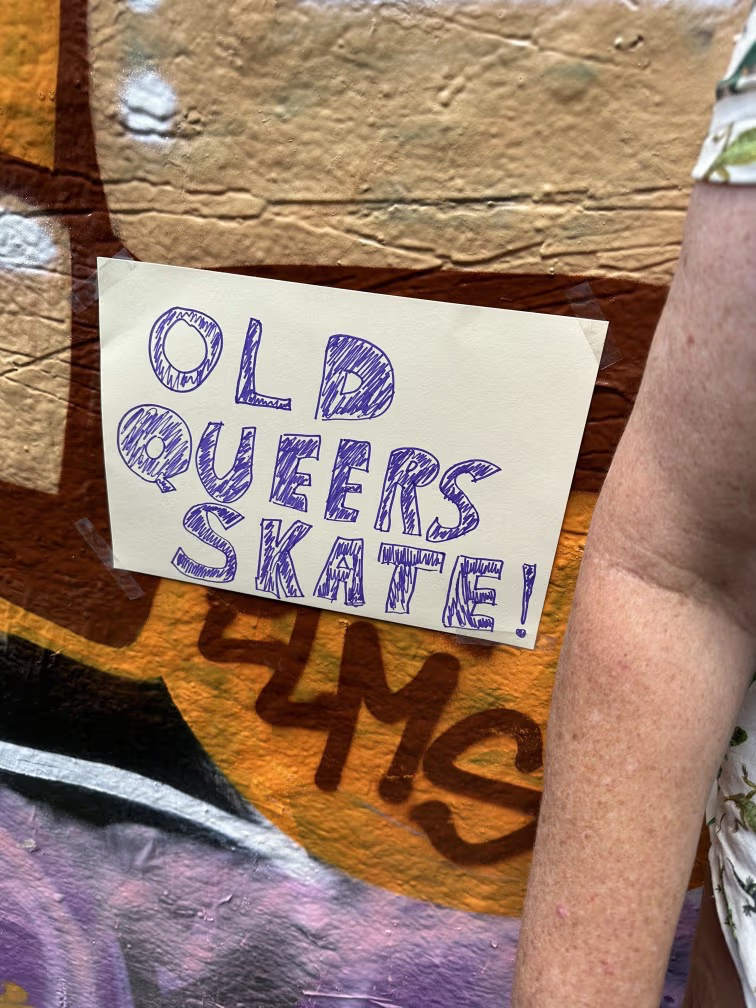Queer Relationality

Queer Relationality reimagined what it means to think, teach, and learn queerly
In 2024, HISS returned with a provocation: what happens when we challenge the supremacy of logic and reason in favour of queer ways of knowing? Under the theme Queer Relationality, the Institute reimagined thinking itself not as disembodied or abstract, but as sensory, collaborative, and affectively charged.
Over two weeks, twenty-five scholars from across the globe came together for workshops that stretched the limits of what counts as scholarship.
Participants riffed on queer pedagogies through zine-making and design, tested intimacy and knowledge in the Queer Playground, and performed research through music in the now-iconic Critical Karaoke.
Filmnotes and freewriting blurred the lines between memory and method, while sessions on AI, games, and relationality offered new frameworks for queer futures. Across it all, the RD Watt building once again transformed into a queer classroom. One where metrics were discarded, binaries dissolved, and learning felt.

Three moments that defined this year



In this hands-on session, participants explored design as a way to think and feel queerly. Using paper, silhouettes, and improvised forms, they built abstract structures and speculative objects.
Queer Design

“HISS has been the most generative and exciting ‘school’ experience in all my many years of education.”


The process centered expression over resolution, inviting playful, open-ended making beyond logic or function.
The room became a temporary design lab. Miniature cities, portals, objects, and metaphors bloomed across every surface. Some participants created speculative game pieces. Others crafted tangled, collaborative environments that resisted categorisation.
Through this playful process, the group explored how queerness can shape not just what we make, but how we make — embracing tactility, multiplicity, and joyful disorder.
Social Enterprise
The familiar buzz of theory gave way to something more grounded. Facilitators from Consent Labs invited HISS participants to shift their attention—from the abstract to the actionable. The session asked: how can consent education move beyond the classroom, and into the public sphere? And what might it mean to build a social enterprise around it?


"It was the first time I saw a business model that didn’t compromise on its politics."

The workshop wove personal insight with strategic thinking. Participants explored the realities of delivering inclusive consent education in schools, communities, and workplaces, while unpacking the cultural and institutional barriers such work often meets. Through case studies, collaborative discussion, and lived experience shared by the facilitators, the session offered a rare blend of political clarity and practical generosity.
By the end, the whiteboard was covered in bold, imperfect sketches of future projects—ideas that held tension, creativity, and care. The energy in the room was less about solving everything and more about being in it together, imagining what a values-driven, queer-informed business could look like in practice.
Play and Thrive Workshop
Facilitated by sociologist and skater Indigo Willing, the Play and Thrive workshop invited participants to explore the politics of play, movement, and care through the lens of skate culture.



Drawing from Indigo’s work with Skate, Create, Educate and Regenerate, the session asked how we can create spaces for joy and mutual support in a world that often polices queer and marginalised bodies.
The workshop opened with a collective reflection on skateboarding as a metaphor for queer learning — an act that is repetitive, unpredictable, and deeply communal.
Indigo shared how skating can function as an informal, DIY classroom, where mistakes are expected, creativity is encouraged, and community is everything. It set the tone for a session less about instruction, and more about shared motion.


"The power of play and fun remain vital to the human experience, healing, creative expression, education and regeneration."
Participants then broke into small groups for team-based activities that encouraged collaboration and low-pressure interaction. Whether it was balancing exercises, improvised games, or trust-based challenges, the emphasis was on creating micro-moments of connection. Laughter, eye contact, and spontaneous choreography emerged — the kind of interactions that rarely appear in traditional classrooms but leave lasting impressions.
By centering play as a form of relational practice, the session challenged participants to rethink what thriving looks like in queer spaces. Not through competition or performance, but through softness, missteps, and being witnessed. The room became a space of possibility, where movement and rest were equally valid, and where learning was allowed to feel light.
Reflections from HISS faculty members


“HISS is one remarkable and heartfelt queer-led scholarly program. It is exactly the kind of community I wish I had when starting out on my research journey.”
Xavier Ho
.avif)
“HISS is an incredible opportunity to build an LGBTQ+ intellectual community across disciplines and to explore the future of queer and trans pedagogies.”
Dr Teagan Bradway
See the happy faces of this year's cohort


Adriana Haro

Barrie Shannon

Benjamin Kennedy

Cornel Grey

Darryl Peers

Facundo N. Suenzo

Fatemeh Gharibi

J Skelton

Jacinto Peliowski

Jen Kaighin

Kristy Smith

Kyoko Takeuchi

Lindsay Cavanaugh

Michelle Turner

Muhamad Alif Bin Ibrahim

Nnenna Onyima

Percy Gurtler

Peta Phelan

Qui Alexander

Rowan Morgan

Sohini Chatterje

Tinnaphop Sinsomboonthong

Wooyoung Kim

Alex Brostoff
(Digital archive)
Each year of HISS has been carefully documented and curated into our digital archive. It is a living record of the creative, intellectual and collaborative work produced by our cohorts.
More than a collection of research papers and classroom materials, these archives capture the spirit of HISS as a queer-led classroom where learning is embodied, experimental and collective.
Inside, you will find academic reflections, workshop outcomes, creative projects and glimpses of the conversations and relationships that shaped each year.
By making this archive accessible, we invite future researchers, educators and community members to engage with the ideas, practices and pedagogies fostered at HISS. It is a space where queer knowledge is celebrated, shared and continuously reimagined.
